This article was published in the Martinez News-Gazette on 01/24/2018 and is the eighth part of our continuing story about Aaron Rice and his family.As we have learned more about Aaron and his family, it has allowed us to gain personal insight into the history we all thought we knew. “History as prolog” is a very common sentiment and as we reexamine the American Civil War, perhaps more relevant today than ever. 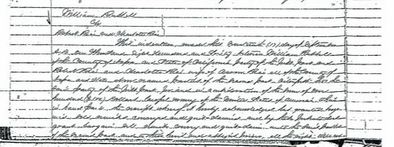 Robert Rice & Charlotte Rice deed in 1860 Robert Rice & Charlotte Rice deed in 1860 Being in California during the war had a profound effect on the Rice family. As a free state, it had brought about their freedom and enumerated them as citizens in the 1860 census, years before the ratification of the 14th Amendment. In addition, they were able to purchase a 160-acre farm and for the first time celebrate the Holidays as they saw fit. In November 1860, they observed the election of a tall, skinny lawyer named Abraham Lincoln as the 16th President of the United States. 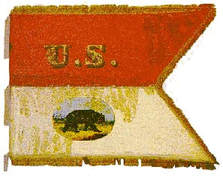 Battle "Guidon" of the so-called California 100 regiment Battle "Guidon" of the so-called California 100 regiment However, with the turmoil of the approaching war, tension and great consternation befell California residents, as about twenty percent were Southern sympathizers. The majority of those living in Southern California and Tulare County supported succession along with large numbers in Monterey, San Francisco, San Joaquin and Santa Clara Counties. California’s African-American population would have been especially anxious. By 1861, industry had taken hold in the North without the need of slavery, while the South still relied on it for farming. The South slowly watched their livelihood dwindle and their belief of slavery as their entitlement come under immense pressure from new industry, westward expansion, the bloody Kansas troubles, and the election of an anti-slavery Republican president. All of which Aaron and his family experienced firsthand. 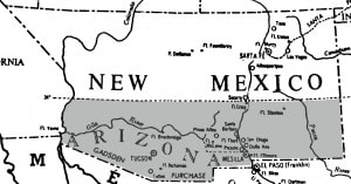 The Confederate Arizona Territory The Confederate Arizona Territory Shortly after Lincoln’s inauguration, eleven southern states broke away from the Union forming the Confederate States of America. On March 28, 1861, the newly formed Arizona Territory voted to separate from the New Mexico Territory and join the Confederacy. This further inflamed tension in Southern California, as it was widely known that it wanted to secede as well. On April 12, 1861, the Confederacy carried out the attack on Fort Sumter officially starting the Civil War. Although most of the country learned within hours of the strike, it took 12 days to reach California. Soon after, Southern California residents voted to secede forming their own territory, joined the Confederacy and began raising militias. Their rebellion was quickly quashed with the arrival of federal troops from Oregon and California Forts Mojave and Tejon preventing its ultimate secession. 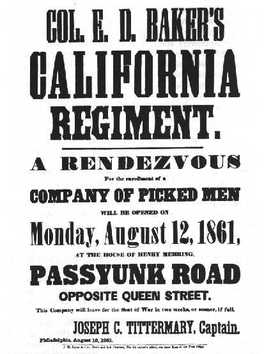 Poster for Northern California recruits Poster for Northern California recruits Meanwhile in Northern California, a larger number of pro-Union volunteer regiments soon formed and were sent to Southern California permanently suppressing its revolt despite numerous attempts. They were also sent to the New Mexico Territory for protection. As a result, the North was able to largely abandon its western territories and focus the full weight of its military against the South. Additionally a large number of Californians joined the 71st Pennsylvania Volunteer Infantry, resulting in its reference as the California Regiment. On September 4, 1861, California elects its first Republican Governor Leland Stanford, (founder of Stanford University) and goes on to play a significant financial role in the war. With its lucrative gold fields, it bank rolls a large portion of the US Government. It was common to have ships leaving San Francisco with more than $1,000,000 worth of gold (over $28,170,644 today) headed to the US Treasury with regularity. Due to the threat of Confederate Privateers with the potential of England siding with the South and attempting to capture California, great measures were taken to secure the San Francisco Bay and its gold shipments. Artillery batteries were set up on the islands of Alcatraz, and Yerba Buena (Treasure Island), Fort Point (Presidio), Lime Point Bluff and Rincon Point. Although England never entered the conflict, there were several unsuccessful conspiracies and attempts to steal the shipments by Southern Pirates. 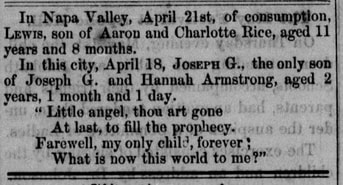 Obituary notice in Pacific Appeal, May 1862 Obituary notice in Pacific Appeal, May 1862 In January of 1862, the Great Flood occurs affecting California, Oregon, Nevada, Idaho and more, ruining a large portion of Napa farmland. We currently do not know what happened to Aaron’s family property and wither their crops were destroyed. However, they would have still been affected, as many of their neighbors needed assistance just to survive. Additionally, that same year brought yet more heartache for them. From the Pacific Appeal’s May 1862, issue was Louis’s obituary, “In Napa Valley, April 21st, of consumption, Lewis, son of Aaron and Charlotte Rice, aged 11 years and 8 months.” Despite all of the hardship and heartbreak their family had endured, this was the most devastating. Not only had they lost their son at such an early age, Nathaniel was still being enslaved by William Rice leaving them childless. 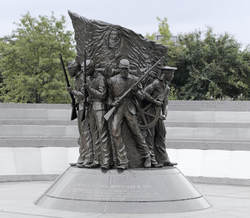 The Spirit of Freedom, African-American Civil War Memorial The Spirit of Freedom, African-American Civil War Memorial Meanwhile, the North’s interest in the war centered on keeping the Union intact. By mid-1862 Aaron would have heard that abolishing slavery had become its focus as thousands of slaves began to run away in order to join Union forces, believing a Union victory would end it. On September 22, 1862, President Lincoln issued preliminary Proclamation 95, better known as the Emancipation Proclamation, declaring that if the Confederacy did not cease their rebellion by January 1, 1863, then it would become official. When his threat does not work and the war continues to rage on, he issues another proclamation declaring African-Americans, “of suitable condition would be received into the armed service of the United States.” In May of 1863, the War Department issued General Orders No. 143, which established the U.S. Colored Troops. On April 9, 1865, Robert E Lee surrenders to Ulysses S Grant at the Appomattox Court House in Virginia. Unlike before, when news from the war only reached California by horseback taking 12 days, the account arrived much sooner as Telegraph poles now connected both coasts. 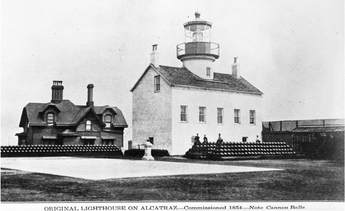 Lighthouse on Fort Alcatraz with cannonballs - 1859 Lighthouse on Fort Alcatraz with cannonballs - 1859 Less than a week later, the announcement of President Lincoln’s assassination on April 15, was both devastating and unsettling causing a riot in San Francisco. Pro-Union mobs raided a pro-Confederate newspaper and assaulted anyone on the streets thought to have sympathized with the Confederacy. Artillerymen from Alcatraz were ordered in to put down the riots and arrest anyone who dared to celebrate his death. On May 13, 1865, the Civil War finally ends. Later on June 19, 1865, General Gordon Granger in Galveston, Texas reads “General Order No. 3”, officially ending slavery throughout the entire United States. The date becomes commemorated as Juneteenth or Freedom Day, a national state holiday recognized in 45 states. Judie & Joseph Palmer are two of the founding members of the Martinez Cemetery Preservation Alliance (MCPA) and the Potter’s Field Project. Both have a passion for discovery, history, genealogy, anthropology and archaeology. For more info, please visit our website MartinezCemetery.org. Do you have a Potter’s Field story to tell? We welcome any pictures or information regarding the Alhambra Pioneer Cemetery or its Potter’s Field. Please email us at [email protected] or call us at (925) 316-6069.
|
AuthorsJudie & Joseph Palmer are two of the founding members of the Martinez Cemetery Preservation Alliance (MCPA) and the Potter’s Field Project. Both have a passion for discovery, history, genealogy, anthropology and archaeology. Archives
October 2021
Categories |

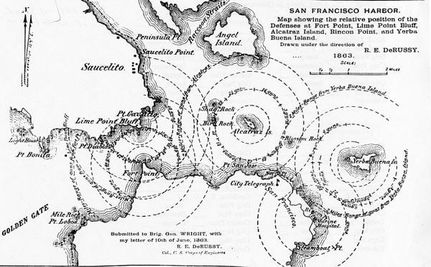
 RSS Feed
RSS Feed